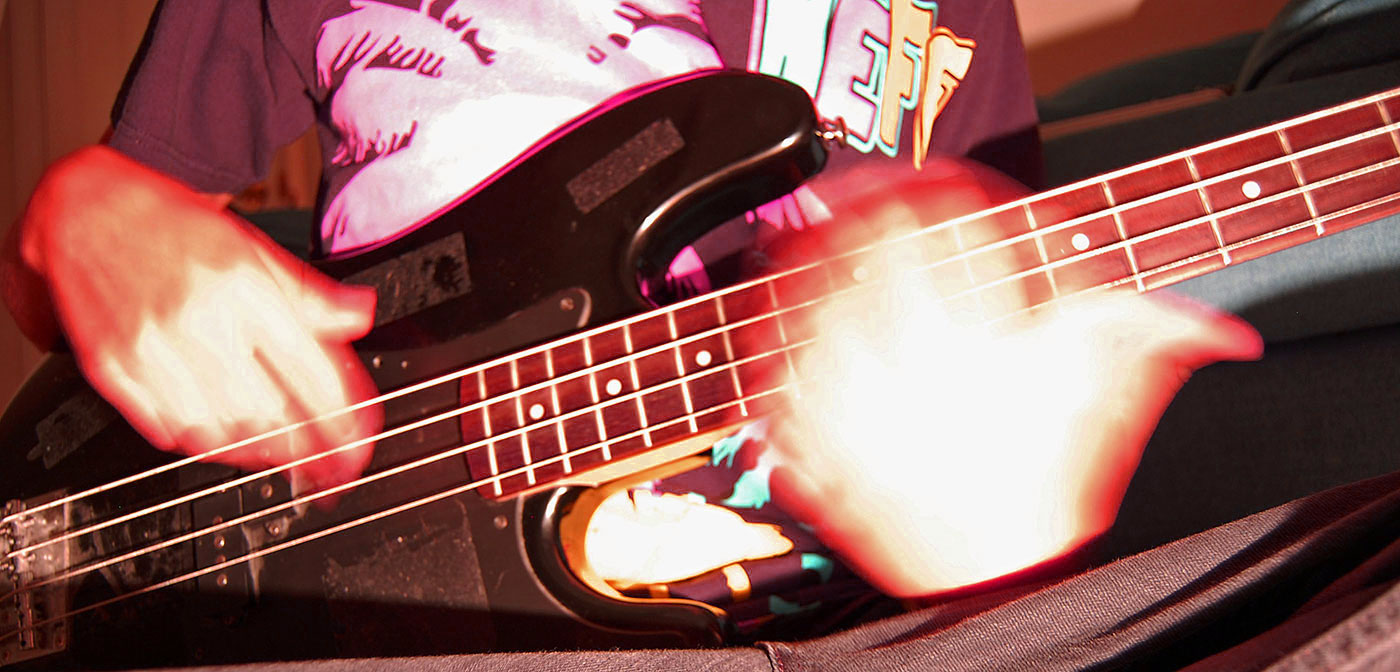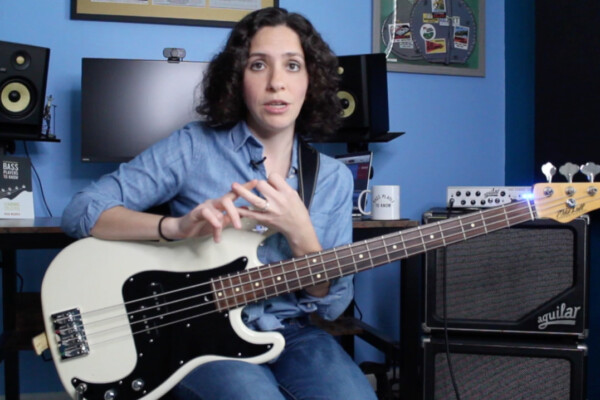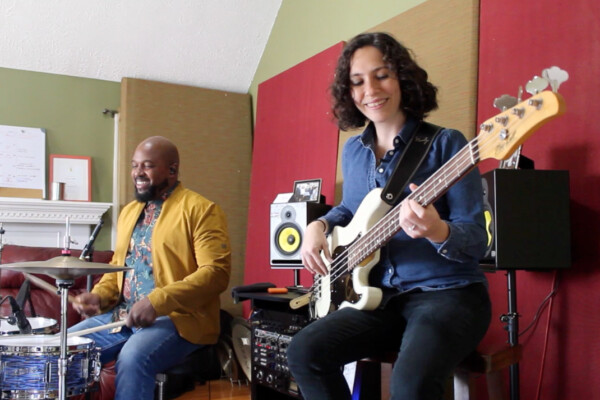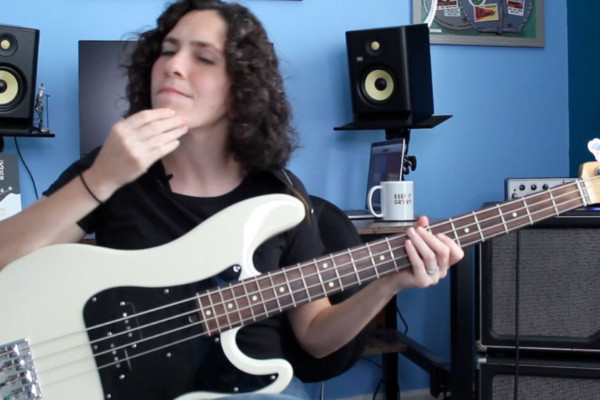Learning to Improvise

Q: I started piano (classic) when I was 3 years old, and I got to a pretty good level until I was around 20. I stopped playing piano around that time and later got back to it. But I wanted to play blues/jazz style, no more classical, ever! But I couldn’t do it. I was always back to my classical background, playing like a good “robot” and unable to improvise. I was offered a bass a few years ago, and I started to learn on my own, essentially blues and funk style. I am now playing in little blues cover band. I am still very “robotic”, not able to do little variations, fills, soloing, etc. I am working my scales/arpeggios daily (like I did with piano), but I don’t know what to do with them. Can you advise me about losing this robotic aspect and how/what to practice in order to learn variations, fills, and finally start improvising?
A: There’s certainly nothing wrong with playing written music as it gets you to focus on articulation and execution but, yes, improvising is a different beast. Whether it’s a solo or a bass line, making stuff up on the fly, and doing it well, often comes down to your musical vocabulary and your ability to listen, react, and play at the same time. Don’t forget that improvisation was a part of classical music as well. It isn’t just a “jazz thing.”
If we make the common language analogy, it becomes clear what you have to do. Right now, you’re comfortable reading out loud from a book but not necessarily relaxing into a conversation with someone on a topic unless you’ve prepared ahead of time. This means that you simply have to develop your vocabulary and deepen your understanding of those things that you want to “talk” about.
What you need is to think about context while you do the good work that you are already doing, while also adding transcription and analysis to the mix.
When I was young, I simply learned to read bass lines and solos out of books. Nobody ever really talked to me about developing my own lines or how to play through changes. I spent my youth thinking that there were people who wrote the music (yes, including bass lines and solos) and there were people who executed it on a stage. I figured that I would be the guy to read stuff and play it, having no idea that I was reading lines that were improvised first and written down later.
This really threw me for a loop later on in life when I re-discovered bass and went to music school. I could sight read like a pro but didn’t know blues changes, couldn’t walk, and had zero clues as to how to go about coming up with a bass line of my own.
So, what to do?
Personally, I took these steps:
- I started exploring scales and arpeggios while also thinking about what chord types they fit over, so I could start to understand what notes were available to me when looking at a set of changes. (I’ve written a ton of articles here about how to tackle that stuff. Use the search feature to find anything you may want to explore)
- Then I started transcribing like mad. Bass lines, solos, licks, melodies… The key here is that I took it a step further than just figuring out what notes they played and in what order. I also looked at the context of the lines as they related to the changes. What chord was this lick happening over? How did it fit one scale or another? Could I take that lick that started on the root of the minor chord and play it over a major chord, starting on the 6th (relative minor)? It’s not the notes and time alone. It’s how they relate to what’s happening around them.
- I joined a cover band and dove deep into the tune learning pool. Learning dozens to hundreds of tunes is a sure fire way to increase your vocabulary (especially if you know them well enough to move them around to different keys for different vocalists). Pay attention to how those bass lines relate to the tonality, scale, etc. You can’t help but start to get a better grip on bass line construction.
Be patient, but work diligently. If you work both hard AND smart, there’s no end to what you can accomplish. The key is working with intention and never just going through the motions (ie: practicing what you’re good at opposed to focusing on your weaknesses). It sounds like you’re doing some good work. If you supplement those arpeggios and scales with transcription, analysis, and learning as many tunes ass you can cram into your head, you’ll get there before you know it!
Have a question for Damian Erskine? Send it to [email protected]. Check out Damian’s instructional books, Right Hand Drive and The Improviser’s Path.



